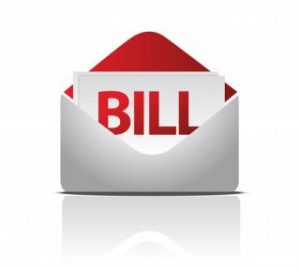 Finding that supplier consolidated billing (SCB) represents the next logical step for Maryland to fully implement customer choice, the Maryland Public Service Commission on May 7, 2019 issued an order authorizing SCB for retail electric and natural gas service in Maryland. In this historic order, the Commission found that SCB could support the growth of retail competition in Maryland and is consistent with the Commission’s policies to promote competition. SCB, by augmenting the existing billing arrangements, should assist suppliers in establishing brand identity and clarifying the products available to customers. At the same time, SCB should facilitate the development of new and innovative products and services and increase the number of Maryland households that shop for electricity and natural gas. Based on these and other conclusions, the Commission found that “it is now appropriate to proceed with the development of SCB.”
Finding that supplier consolidated billing (SCB) represents the next logical step for Maryland to fully implement customer choice, the Maryland Public Service Commission on May 7, 2019 issued an order authorizing SCB for retail electric and natural gas service in Maryland. In this historic order, the Commission found that SCB could support the growth of retail competition in Maryland and is consistent with the Commission’s policies to promote competition. SCB, by augmenting the existing billing arrangements, should assist suppliers in establishing brand identity and clarifying the products available to customers. At the same time, SCB should facilitate the development of new and innovative products and services and increase the number of Maryland households that shop for electricity and natural gas. Based on these and other conclusions, the Commission found that “it is now appropriate to proceed with the development of SCB.”
The case was initiated by five retail suppliers – NRG Energy, IGS Energy, Just Energy Group, Direct Energy and ENGIE Resources – and the Commission held a hearing in February 2018. We’ve blogged about this case here and here and also posted a video blog here.
In the order, the Commission established the SCB Workgroup and immediately tasked it with developing an implementation timeline within the next 60 days. The timeline, filed in early July 2019, calls for full-on SCB implementation by September 1, 2022.
To guide the SCB Workgroup, the Commission addressed numerous substantive elements of the SCB program, the highlights of which include:
Supplier Qualifications to Provide SCB:
The Commission held: “any proposed regulations should comprehensively address the capabilities necessary to ensure that these functions are performed on par with existing utility offerings. Further, the regulations should be tailored to demonstrate that a supplier can meet the rigorous demands of increased customer service and dispute resolution functions, complex billing requirements, and the quality assurance and record keeping necessary to handle utility charges that may contribute to potential utility disconnections.”
Authority of SCB Providers to Disconnect Customers for Nonpayment:
The Commission rejected the petitioners’ request to allow SCB suppliers to initiate disconnects for non-payment. This had been a central element of the petitioners’ case because it is necessary to manage bad debt, similar to the utilities. In response to those concerns, the Commission will require that utilities purchase the outstanding distribution charges of a delinquent customer account upon the customer’s return to standard offer service (SOS), as further discussed below. For other charges, the SCB provider must resort to the traditional remedies of other non-regulated businesses, including reporting to credit agencies, seeking monetary judgments in court, and pursuing collection activities.
Purchase of Receivables (POR) and Supplier Bad Debt:
The Commission held that SCB suppliers must provide POR to the utili8ty on substantially the same terms as provide in utility consolidated billing (UCB). The Commission directed the workgroups, including the SCB Workgroup, to identify and propose an equitable payment posting priority system and other protections that may be necessary to ensure that any charges contributing to a disconnection are properly handled. Additionally, the Commission agreed with the petitioners that suppliers need some ability to protect themselves from the risk of non-payment. The Commission held that, after reasonable efforts to collect, the supplier should not be required to hold any debt attributable to the customer’s distribution charges paid under POR. Where a supplier can demonstrate the amount of unpaid distribution charges, the utility should repurchase those charges at a zero discount rate unless the SCB Workgroup can provide alternative calculations which are supported by a compelling analysis.
Customer Protection and Customer Education:
The Commission held that a supplier that offers SCB is required to provide all the same consumer protections, disclosures (including the utility’s price to compare), notices,
and billing information required of a regulated utility. This includes providing all surcharge line items and compliance with all current COMARs related to consumer protections. The Commission directed the SCB Workgroup to identify and justify any deviations from or additions to existing consumer protection standards. The SCB Workgroup should consider new disclosure and notice requirements for how utilities and SCB suppliers communicate the varying relationships to the customer, the content of past due notices by SCB suppliers, and the utility notices for customers selecting SCB.
Cost Recovery:
The Commission made no findings regarding cost recovery. The Commission directed the SCB Workgroup to identify and estimate, with as much detail as possible, these and any other costs and benefits related to SCB. The Commission directed the SCB Workgroup to consider varying cost recovery mechanisms and present either a consensus approach or options for Commission consideration. The Commission recognized that the SCB Workgroup might not reach a consensus on cost recovery but said, “this should not delay progress towards proposing regulations in other areas.”
If you have questions about SCB or electric or natural gas retail service in general, please contact one of GreeneHurlocker’s energy and regulatory lawyers.



No Comments